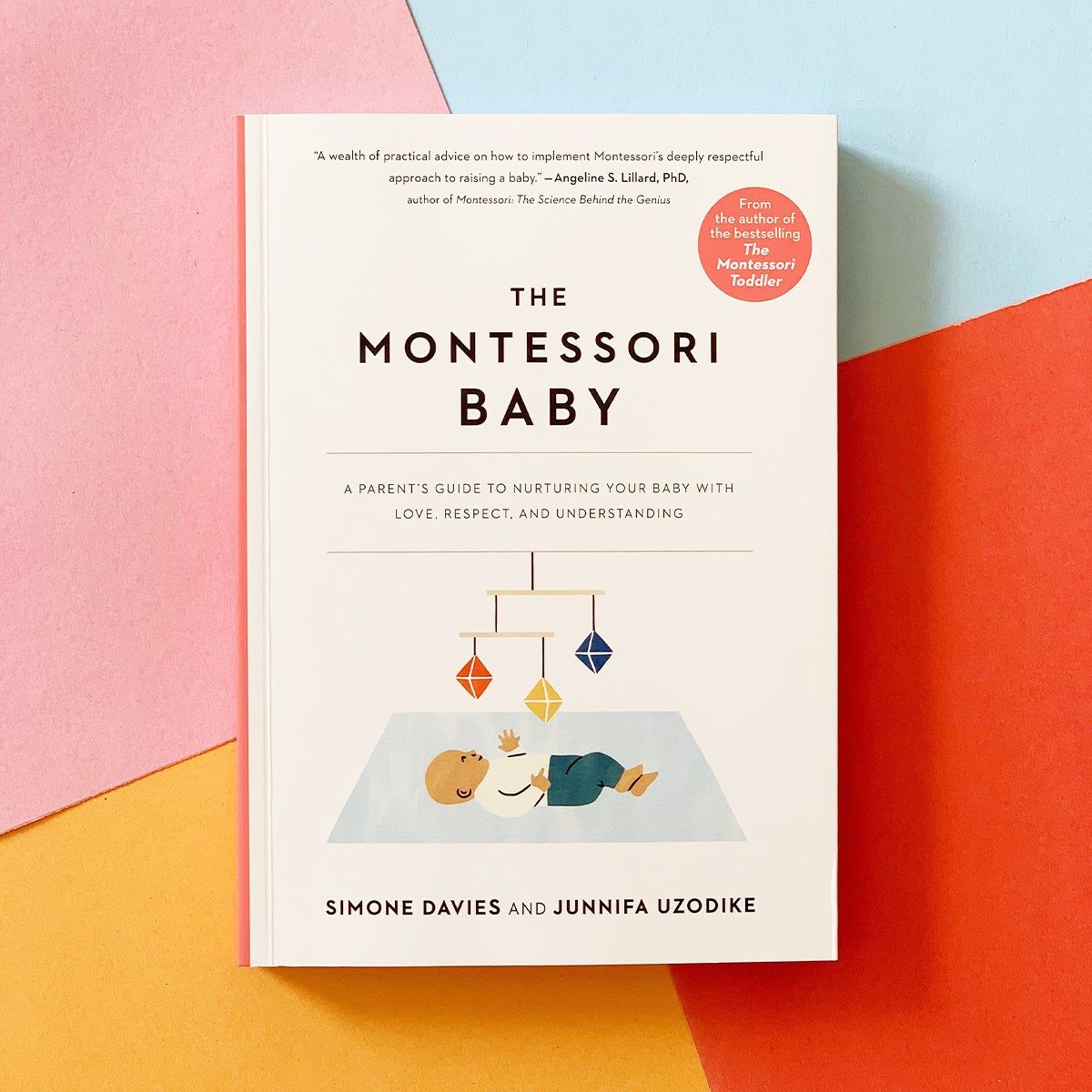
Parental Arts
How to Raise a Montessori Baby
- Written By
- Marnie Schwartz
You open the book with the statement, “We need to change how we see babies.” What exactly does that mean?
Junnifa Uzodike: Babies are very capable. We look at them as helpless humans, but Montessori parenting recognizes instead that they’re able to do so much. They’re able to understand things and communicate their feelings and preferences. They may do it in a different way, like with their body language or their smile, but they’re communicating with us all the time. We are quick to step in and help them and solve their problems. But they do want challenges. They want to figure out how to get to that toy or turn themselves over.
We tend to think of education as something that begins when kids start going to school. Why is this a misconception?
Simone Davies: The Montessori method lays a foundation now for what comes later. Instead of thinking at age four that we have to teach them how to hold a pencil, we’re strengthening their hands from birth. It’s a more holistic way of looking at education.
JU: Montessori actually said education begins at birth, or even at conception. We know that when we sing to our children while pregnant, they are hearing us. Children learn from the womb. Once they’re born, they learn by watching us. The absorbent mindset means that everything they experience becomes a part of them, so we want to be conscious of and intentional about what we’re exposing them to. Children are educated by their parents, not just by school.
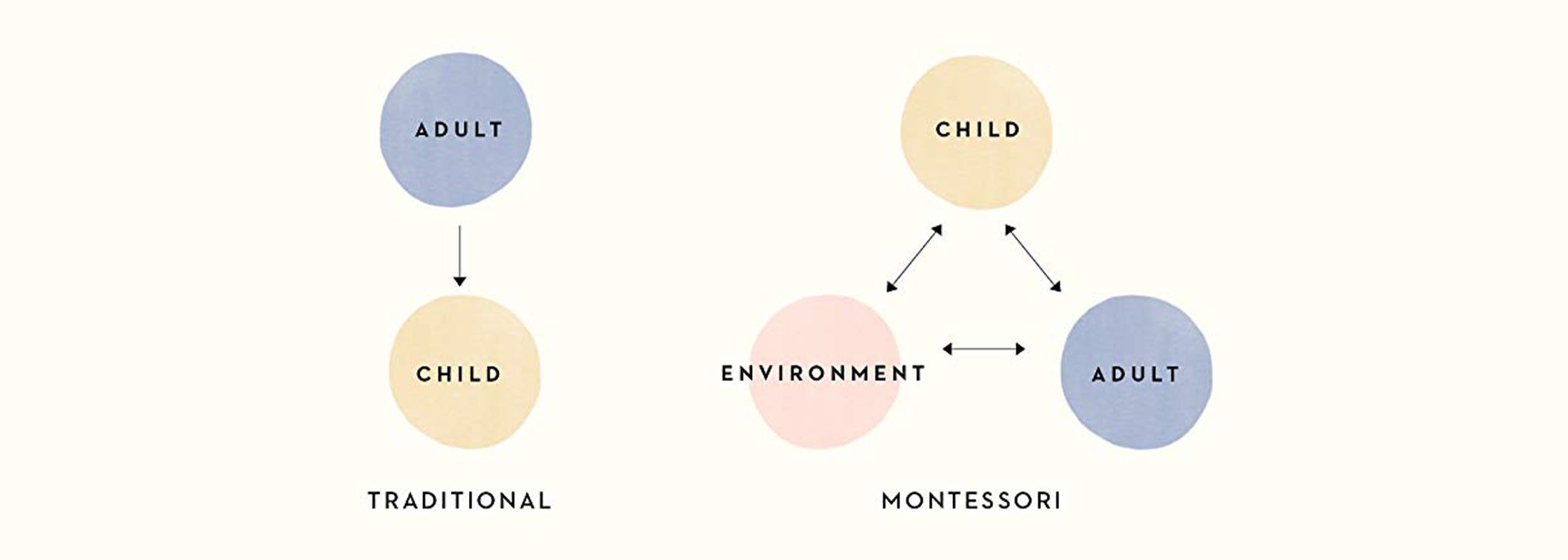
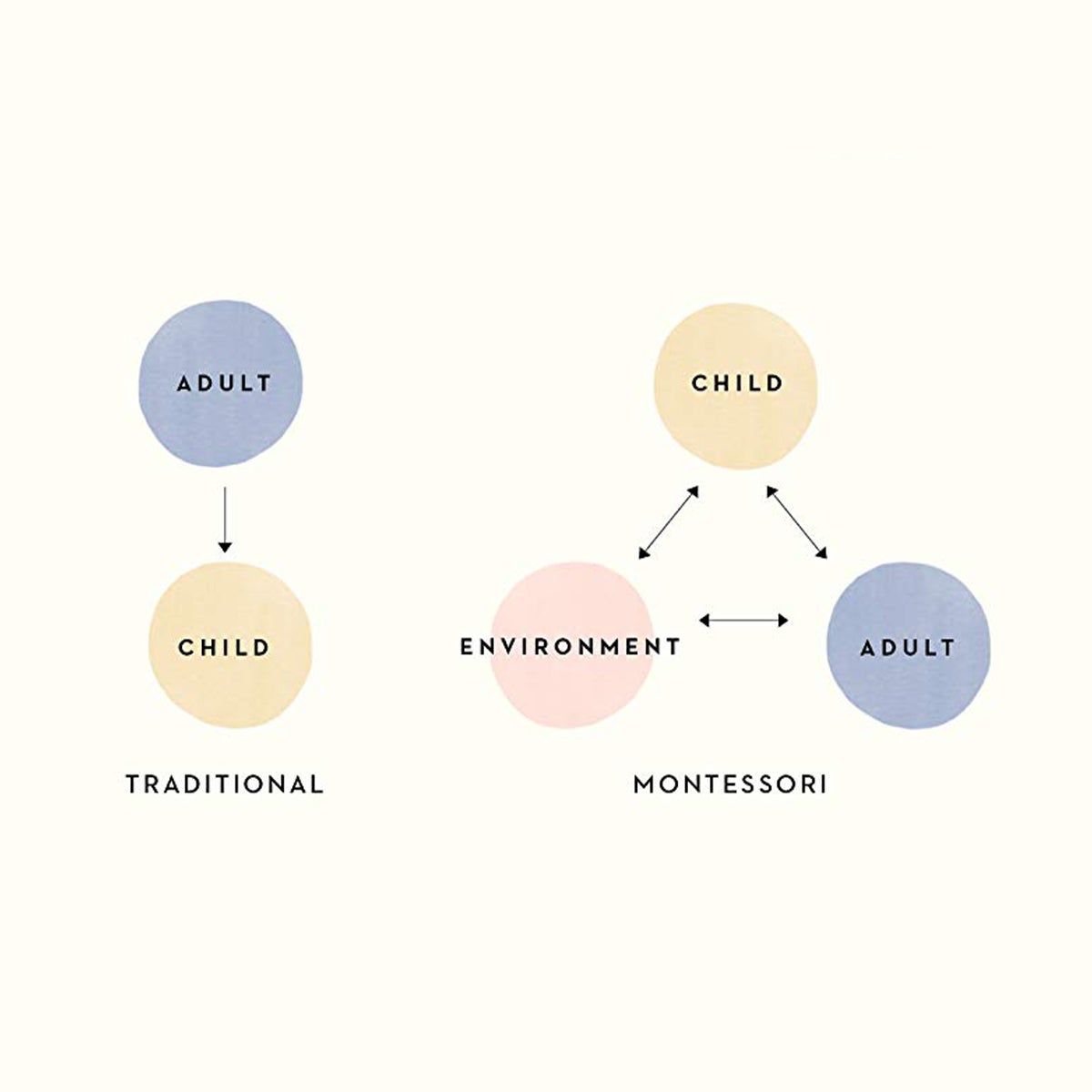
You write about the importance of “the prepared environment.” What makes an ideal space for a baby at home?
SD: It’s intentionally prepared, simple, beautiful, and child-sized. Montessori parenting encourages you to get down and see what it looks like from the baby’s point of view. You want simplicity, which will help them feel calm. Indoors, it’s about how you set up your living and play space. Outdoors, it’s using elements of nature as part of the prepared environment.
JU: Preparing the environment using the Montessori approach allows us to see how capable a child is. When you’re in an environment for adults, you’re not seeing their capabilities. But when you have a child-sized table and chair, you’ll see an infant pull up to it. If you have a low shelf with toys close to a mat, they’ll be motivated to try and move on their bellies to choose something. When practicing Montessori parenting, you'll want to prepare a place to sleep, a place to eat, a place for physical care, and a place to play. In every room in your home where your family spends time together, prepare a space for the baby, so there is always a safe space for them to explore. By doing so, you’re sending them that message that you have a place here.
Part of that prepared environment is fewer toys or activities out at one time. What are some of the benefits of toy rotation, and how do you actually do it?
JU: When you rotate toys, it builds interest and encourages you to observe how your child interacts with whatever you make available to them. Use your child’s age as a guide to know how many things to put out at a time. For example, if they are 2 months old, put out two toys. At 3 months old, put out three things. Every two to four weeks, change out one or two of the items depending on what they are drawn to. Watch your baby and see what they are doing. If they’re starting to reach for things or pull at your earrings, it’s time to give them a mobile to pull at. If they’re always wrapping their hands around your finger it's time for a rattle. If they’re trying to crawl, choose a ball they can crawl after. A lot of what we do with the Montessori method is based on observing your child, and seeing what they are trying to tell you. You don’t need to buy too much. Look for things that are simple, durable, and beautiful… things that fit in a child’s hand and that they can navigate independently.
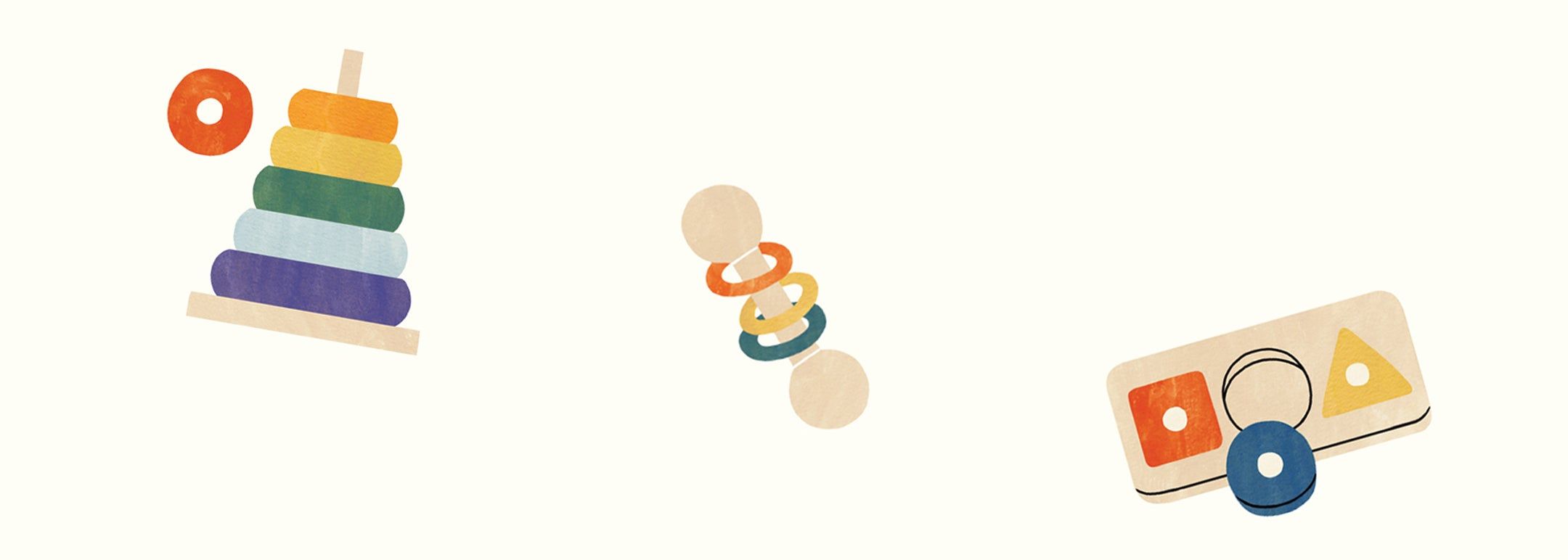
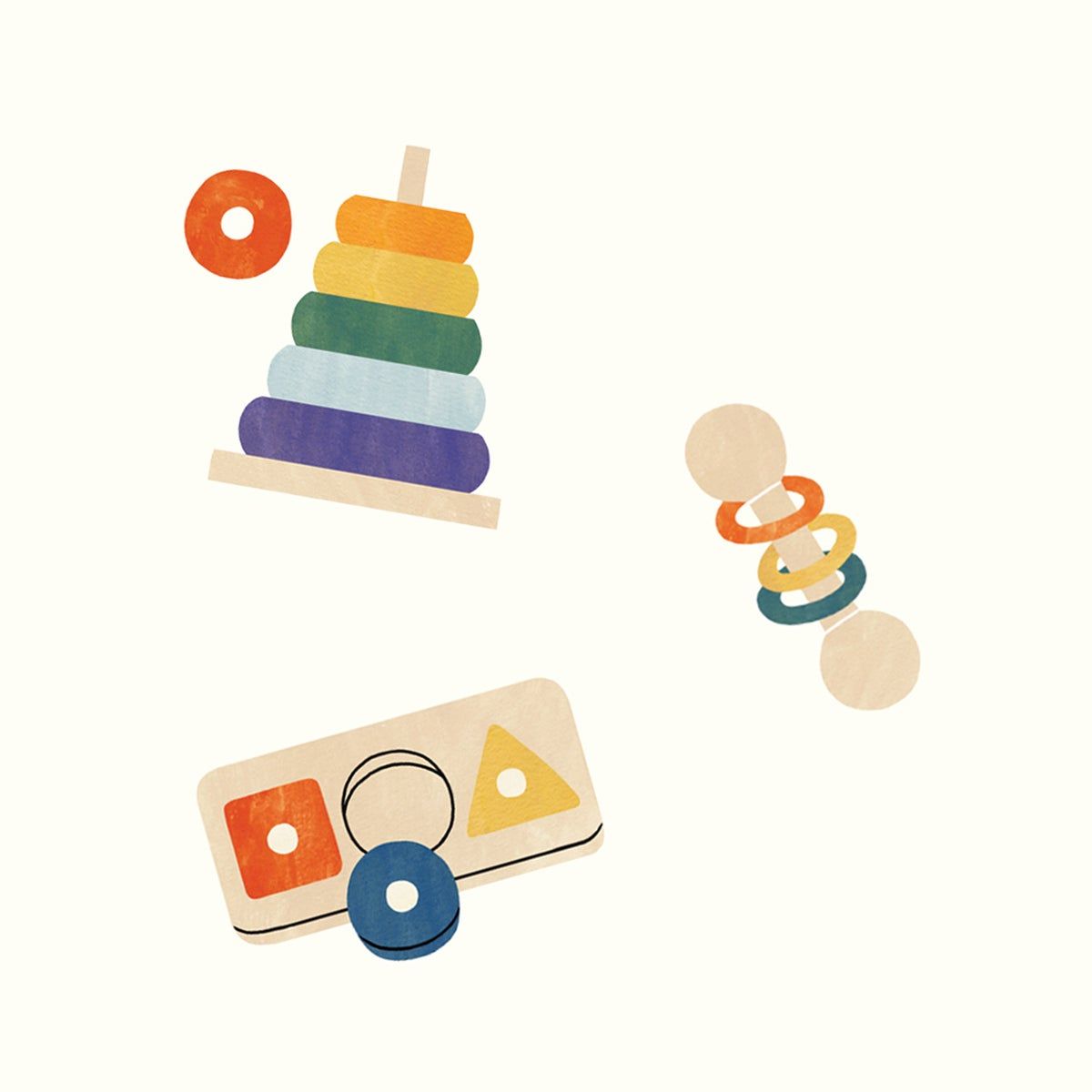
Let’s talk about the concept of respect as it relates to the Montessori method. How do we show respect to a baby?
SD: There are so many ways to show love, respect, and understanding. The way that we hold and use our hands with a baby... if we treat them roughly, then we are showing them that the world is a rough place. When we hold them gently, we’re showing that we respect them. Another example is using a soft voice with a newborn. Even things like saying, I’m going to pick you up right now before you do it. If you pause for a moment, you can see them lift their arms or head--it’s the early stages of consent. When they make a sound, and you look at them and make a sound back, you’re respecting that they have something to say. And respecting their freedom of movement, giving them time for exploration. We don’t like to have babies in things that restrict them, which is why we prepare the Montessori environment so intentionally. We’re making safe spaces in our homes for them.
You write that it’s not the parent’s job to entertain. Can you explain that a little bit?
SD: It’s a fine balance. When a baby is concentrating, it’s not for us to interrupt their concentration. But of course there are moments when you’re out walking and talking. What is your baby interested in? Let them discover it. We might think we have to always be making them laugh and learn, in a top-down way. But a Montessori baby is capable.
JU: Children are capable of entertaining themselves given the right environment. When we’re always entertaining them, we’re telling them they can’t entertain themselves. We don’t want to create children who always need us there as a crutch. Instead we can support them in entertaining themselves. At first it might just be five minutes on a play mat. But gradually they learn how to discover and seek. We think they have to be constantly stimulated, but there are benefits of learning to just be, and that starts from infancy.
What else do you want to share with parents about a Montessori approach to babyhood?
SD: We always talk about the preparation of the adult being important, and feeding our own needs. It’s so important to have support.
JU: Enjoy the first year! It’s not supposed to be stressful. It’s not about seeking perfection but about the best opportunities and experiences for our children. But what’s most important is the joy. The best things about Montessori parenting are intangible: Smiling faces, gentle hands, being present, and connecting with your child.